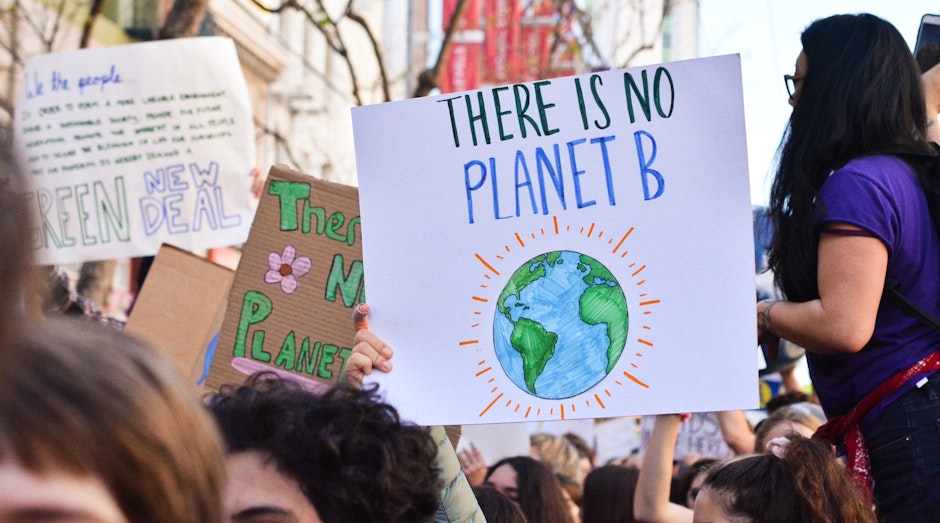Brand purpose: What are the main causes that count, and how can brands respond?
Through a clear purpose, companies are able to help solve problems faced by people and the planet, while identifying opportunities for growth and developing a more meaningful culture

Clearly defining the purpose and the business’s role in reaching the ‘destination’ is therefore critical. This relies on asking the right question to the right people across core themes and understanding the issues that are most important for consumers.
To establish which issues resonate most strongly with consumers, each year Revolt indexes the top 50 most important causes. Our 'Causes that Count' research acts as a compass, pointing us towards the issues that provide the biggest opportunities for companies to forge a lasting emotional connection with people.
Revolt’s index combines unprompted and prompted responses from 2000 people surveyed by Attest during January 2022. The final scoring recognizes the strength of feeling across four markets – UK, US, China and Brazil - weighting each country equally.
Some of the causes that are in our top 10 are very much in line with the pressing issues that people face each day and are exposed to via mainstream news and social media. However, what is perhaps more revealing is the number of persistent issues where brand and business action is conspicuously absent.
On the back of COP26 and a year of weather extremes, it comes as no surprise that the number one cause is climate change, up from number two in 2021. It was the number one cause in both the UK and China, but behind at eight in Brazil and 18 in the US. Unless the bold pledges made at COP26 are swiftly followed with meaningful actions, people’s attention on the effects of climate change – and the number of protests – will only increase.
'Unemployment & job security' was knocked off last year’s top spot, coming in at a close second. The threat of losing work and income is still top of mind for most people. Some groups are still suffering far more than others. In the US, 35% of women who left or lost their jobs during the pandemic are still unemployed, and the unemployment rate for black people actually increased towards the end of 2021. If businesses want to address this issue properly they need to dig deeper and support those being disproportionately affected.
'Poverty, hunger & homelessness in my country', is the third most important cause, rising from ninth place last year – one of the biggest increases we saw in the research. With the knock-on effects of a pandemic-struck world, it’s no surprise that a rising cost of living and essential goods have quickly become one of the most worrying drivers of poverty across the UK, US and Brazil. These are issues that have been ignored by public policy and employers for years, particularly for the US and Brazil. People are worried about the fortunes of others - a consistent theme from last year - but one that has become pressing and concerning.
The fourth most important is 'access to healthcare'. Given the continuing impact of the pandemic, it’s not surprising that access to healthcare remains in the top five. However, it’s the issues that have been brought to light by the way healthcare systems have had to evolve and adapt that’s particularly interesting. For example, the increasing shift to and reliance on digital healthcare services has shone a new light on the ‘digital divide’ and in many cases even exacerbated it. Digital inclusion is arguably one of the most important issues of the 21st century.
'Government transparency, corruption & threats to democracy' rises to number five this year. This reflects the fact that 2021 was the fifth consecutive year in which more nations moved further towards authoritarianism and away from democracy. We saw several political leaders use the pandemic as a smokescreen to introduce new restrictions on rights and accountability, and crack down on the freedoms of expression and protest. With last year’s Summit of Democracy naming 2022 the ‘Year of Action’, we will increasingly see people putting pressure on their governments through social movements and protest.
Outside of the top five, we’ve seen some very significant changes in the perceived importance of causes. 'Decline of family relationships' has moved up 12 places – the biggest leap in the index – to 25th place. With the global spike in divorce rates, domestic abuse and the pressures on families to fill the educational needs of our children, there are undeniable pressures on the family to perform in a post-pandemic world.
'Unifying our countries & communities' saw the biggest drop, falling 12 places to number 33. In the UK this was ranked at 41 and in Brazil nearly in last place at 47. In 2021, we recognized that the Covid-19 pandemic had caused communities to reunite and reenergised a sense of civic duty. Arguably, this is no longer top of mind.
Somewhat surprisingly, 'race relations & racism' has dropped eight places to number 32. The response to the George Floyd tragedy in 2020 and the rise of the Black Lives Matter movement in turn, triggered global conversations about race. But as headlines have decreased, so has support for the issue.
'Extreme poverty around the world' also dropped six places to number 12. However, extreme poverty is on the rise and progress towards its elimination has reversed with around 97 million more people living on less than $1.90 per day. In the UK poverty is the fifth most important cause and it’s number six in Brazil.
Once again, 'Causes that Count' has identified the issues that weigh most heavily on consumers around the world. Equally, it has identified some of the biggest opportunities for companies to forge sustainable emotional connections with people. Businesses looking to embrace cause-related opportunities need to do so in ways that are authentic and aligned with their purpose to ensure their actions are both credible and profitable.
By Alex Lewis, co-founder, Revolt

